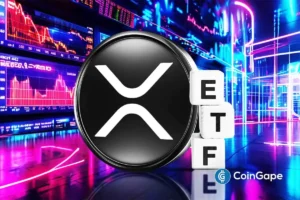Tether’s Strategic Move in Juventus FC: A Game-Changer for Governance and Investment
Tether, the leader in the stablecoin market, is making waves beyond its blockchain roots by entering the boardroom of Juventus FC, one of Italy’s most recognized soccer clubs. With a substantial 10.7% stake in the team, Tether has positioned itself as the second-largest shareholder after Exor, the investment firm controlled by the Agnelli family. This significant ownership stake gives Tether a notable influence within the club, but recent developments have sparked tensions regarding governance and decision-making processes.
Exclusion from Key Decision-Making
Despite its large investment, Tether has faced significant hurdles in asserting its voice within Juventus’ governance structure. The stablecoin issuer was notably excluded from critical decisions, including a €110 million capital funding round that Exor already participated in with nearly €30 million. This exclusion has ignited frustrations among minority shareholders who feel their interests are sidelined. The governance issues at Juventus, exacerbated by a reported loss of $58 million in the recent fiscal year, highlight the difficulties the club faces and the frustrations of shareholders over its declining performance.
Proposing Governance Changes
Tether has responded to these challenges by proposing its own list of board candidates for the upcoming shareholder meeting scheduled for November 7. The company aims to join the funding round and advocate for governance modifications that could alter the club’s power dynamics. Under Italian law, shareholders who hold at least 10% have the right to put forth alternative board lists. This provision empowers Tether to challenge Exor’s dominant control over Juventus and signifies a critical moment for minority shareholders seeking greater accountability and influence.
Tether’s Broader Implications for Crypto and Traditional Finance
The contention between Tether and Exor is noteworthy not just for Juventus but also for the broader conversation around cryptocurrency’s role within traditional sectors. Exor has expressed unwillingness to engage with crypto ventures, indicating a reluctance to embrace digital assets in its finance strategy. However, Tether’s push for board representation could reignite discussions about the intersection of cryptocurrency and traditional markets, as well as the potential for stablecoins to influence conventional investment landscapes.
Robust Performance of Tether in the Market
While navigating governance challenges at Juventus, Tether continues to solidify its dominance within the stablecoin market. Recent analytics from Visa showed that USDT processed an impressive $613.56 billion in transactions in September, significantly outperforming its closest competitor, USDC, which processed $415.68 billion. This robust transaction activity underscores Tether’s influential role in the cryptocurrency ecosystem and positions it well for future growth, particularly as it seeks to leverage its recent launch of USA₮, a U.S.-regulated stablecoin backed by the dollar.
The Future of Tether and Juventus FC
The evolving relationship between Tether and Juventus FC could serve as a case study for the integration of cryptocurrency within traditional business sectors. As Tether seeks board representation and greater influence, the outcome of this endeavor won’t just impact its investment strategy, but also set a precedent for how digital assets can intersect with mainstream finance. Believing in greater engagement and regulatory adherence, Tether’s ambition reflects a vision where cryptocurrencies play a significant role in shaping the future of investment, governance, and operational strategies in well-established entities like Juventus FC.
















